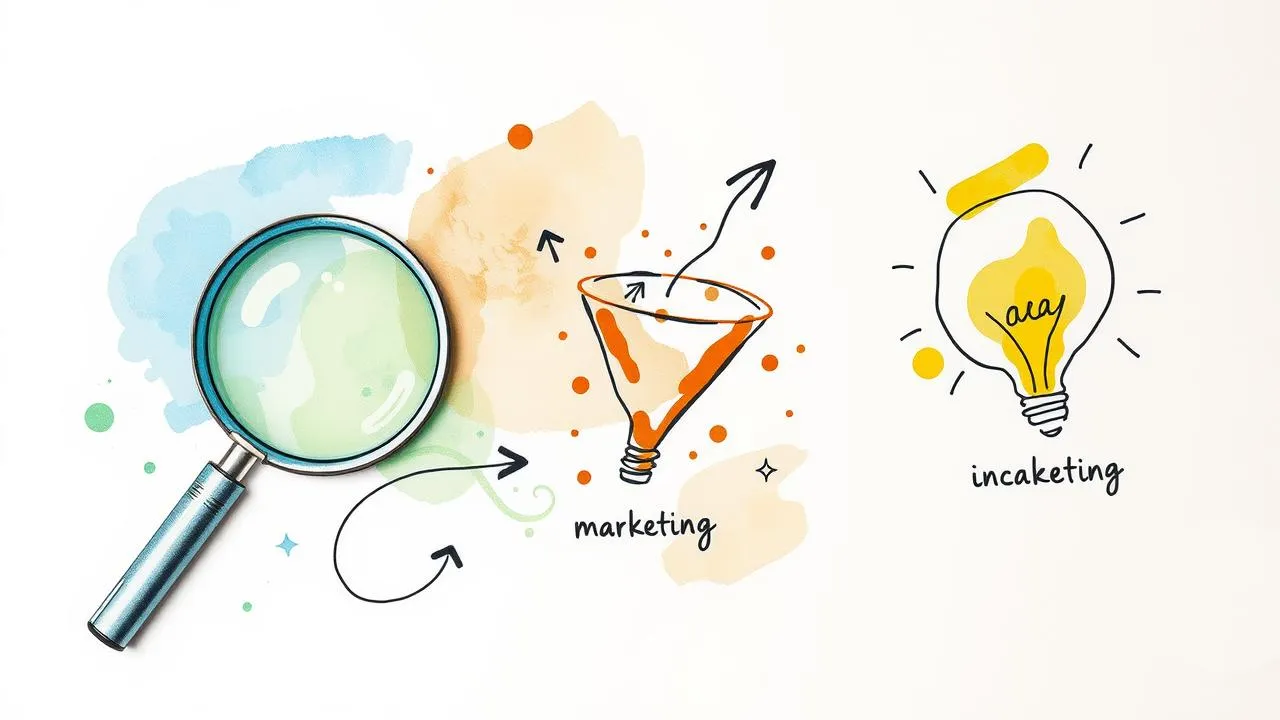Table of Contents
- Lead generation agencies vs Marketing agencies
- Definition of Lead Generation Agency
- Definition of Marketing Agency
- Scope of Services: Lead Generation vs Marketing
- Goals of Lead Generation and Marketing Agencies
- Measuring Success: Leads vs Brand Awareness
- Marshall Evans and Advertising Raleigh’s Approach
- The Relationship Between Lead Generation and Marketing Agencies
- Frequently Asked Questions
Lead generation agencies and marketing agencies serve distinct, yet complementary roles in business growth. A lead generation agency primarily focuses on producing potential customers through tactics like SEO, PPC, and social media, often delivering qualified leads that indicate interest in products or services. On the other hand, a marketing agency encompasses a wider array of services including branding and market research to enhance overall brand presence. While lead generation aims at collecting contact information of prospects, marketing seeks to elevate brand awareness across various channels. Experts like Marshall Evans recognize that both strategies are essential; combining effective lead generation with comprehensive marketing fosters stronger brands for small businesses.
Definition of Lead Generation Agency
A lead generation agency is a specialized type of firm that focuses primarily on generating leads for businesses. Unlike a traditional marketing agency, which offers a wide range of services, a lead generation agency hones in on attracting potential customers specifically interested in a business’s offerings. They employ various strategies such as search engine optimization (SEO), pay-per-click (PPC) advertising, content marketing, and social media campaigns to funnel interested parties into a pipeline of potential clients. The leads provided by these agencies are often qualified, meaning they have already demonstrated some level of interest in the services or products being offered, making them more likely to convert into paying customers. For example, a lead generation agency might create targeted ads on social media that drive traffic to a landing page, where users can sign up for newsletters or request more information, thus generating valuable contact information for the business.
Definition of Marketing Agency
A marketing agency is a multifaceted organization that provides a wide array of services designed to promote a brand and its offerings. Unlike a lead generation agency, which focuses solely on attracting potential customers, a marketing agency encompasses a holistic approach to marketing. This includes conducting market research to understand consumer behavior, developing branding strategies to establish a unique identity, creating advertising campaigns to reach target audiences, and managing public relations to maintain a positive image. Digital marketing also plays a crucial role, encompassing search engine optimization (SEO), social media management, and content marketing. The goal is not just to generate leads, but to enhance overall brand awareness and market presence. For example, a marketing agency might launch a comprehensive campaign that includes social media ads, influencer partnerships, and email marketing, all aimed at building a stronger connection with consumers.
Scope of Services: Lead Generation vs Marketing

Lead generation agencies and marketing agencies differ significantly in their scope of services. A lead generation agency concentrates specifically on attracting and converting potential customers, employing tactics such as search engine optimization (SEO), pay-per-click (PPC) advertising, content marketing, and social media outreach. Their primary goal is to gather qualified leads—individuals who have expressed interest in a business’s offerings. For example, a lead generation agency might run a targeted ad campaign that leads directly to a landing page designed to capture user information, such as emails or phone numbers.
On the other hand, marketing agencies provide a broader array of services that extend beyond just lead generation. These services often encompass market research, branding, advertising, public relations, and various forms of digital marketing. The focus here is on developing a comprehensive marketing strategy that elevates a brand’s presence in the market and engages potential customers at multiple touchpoints. For instance, a marketing agency may create a full-fledged branding campaign that includes visual identity, messaging, and promotional strategies to enhance the company’s image and reach an expanded audience.
This divergence in focus means that while lead generation agencies are narrowly tailored to producing leads, marketing agencies take a holistic approach to building and promoting a brand. Each plays a unique role in the business ecosystem, and their collaboration can lead to more effective outcomes for organizations aiming to grow their customer base and market influence.
| Agency Type | Focus | Services Offered | Goals | Measurement of Success |
|---|---|---|---|---|
| Lead Generation Agency | Narrow focus on generating leads | SEO, PPC, content marketing, social media | Collect contact information of potential customers | Number of leads generated |
| Marketing Agency | Broad range of services for brand promotion | Market research, branding, advertising, public relations, digital marketing | Enhance brand awareness and market presence | KPIs like brand engagement, conversion rates, market reach |
Goals of Lead Generation and Marketing Agencies

Lead generation agencies primarily focus on collecting the contact information of potential customers who have shown interest in a business’s products or services. Their goal is straightforward: to generate a steady stream of qualified leads that can be converted into paying customers. This often involves targeted marketing efforts, such as search engine optimization (SEO) and pay-per-click (PPC) advertising, designed to attract individuals who are already looking for solutions that a business offers.
On the other hand, marketing agencies have a wider set of objectives. Their primary goal is to enhance brand awareness and market presence. They aim to create a strong brand identity and engage with audiences through various channels, including market research and public relations. While lead generation is a critical component of the overall marketing strategy, marketing agencies seek to build long-term relationships with customers and foster brand loyalty.
For instance, a lead generation agency might run a campaign specifically designed to gather email addresses through a downloadable resource, while a marketing agency may focus on developing a comprehensive branding strategy that includes social media engagement, content marketing, and advertising to improve overall visibility and reputation in the market. Both types of agencies play vital roles in a business’s growth, yet their goals distinctly shape their strategies and approaches.
- Generate qualified leads to enhance sales opportunities
- Build brand awareness through strategic campaigns
- Increase engagement with potential customers
- Nurture leads through targeted communication
- Drive traffic to business websites or landing pages
- Enhance customer relationships and loyalty through retention strategies
- Measure and analyze marketing performance for continuous improvement
Measuring Success: Leads vs Brand Awareness
When evaluating the success of lead generation and marketing agencies, the metrics used can differ significantly. Lead generation agencies focus on quantifiable results, primarily measuring success by the number of leads they produce. This often involves tracking metrics such as conversion rates from landing pages, the cost per lead, and the quality of the leads generated. For instance, if a lead generation agency runs a pay-per-click campaign, they will closely monitor how many users clicked on the ad and subsequently filled out a contact form.
On the other hand, marketing agencies take a broader approach to success measurement. They assess various key performance indicators (KPIs) that reflect brand awareness and engagement. Metrics such as social media reach, brand sentiment, website traffic, and customer retention rates are commonly analyzed. For example, a marketing agency may launch a branding campaign and evaluate its success not just by immediate sales, but by looking at how many new followers a brand gains on social media or how much website traffic increases over a specific period.
This distinction highlights that while lead generation is critical for driving immediate sales opportunities, marketing agencies prioritize cultivating a robust brand identity and long-term customer relationships. Both approaches are necessary, as a strong brand presence can enhance lead generation efforts, and effective lead generation can feed into broader marketing goals.
Marshall Evans and Advertising Raleigh’s Approach
Marshall Evans and Advertising Raleigh exemplify a unique blend of lead generation and comprehensive marketing strategies. As a fractional chief marketing officer, Marshall Evans brings a wealth of expertise in digital marketing, recognizing that lead generation is not just a standalone task but an integral part of a broader marketing framework. By focusing on lead generation, he ensures that small businesses can attract potential customers effectively. At the same time, Advertising Raleigh enhances this approach by integrating these lead generation efforts with strategies aimed at building a strong brand. This dual focus allows small businesses to not only collect valuable contact information but also to strengthen their market presence and brand identity. For instance, while a potential customer may engage with targeted social media ads that generate leads, they are also exposed to consistent branding messages that establish trust and recognition. This comprehensive strategy illustrates how lead generation and broader marketing efforts can work in tandem to foster growth.
The Relationship Between Lead Generation and Marketing Agencies
Lead generation and marketing agencies may serve different functions, but they are closely interconnected in the business landscape. A lead generation agency specializes in attracting potential customers and collecting their information, which is crucial for businesses looking to expand their customer base. This focus on leads is often achieved through specific strategies like search engine optimization (SEO), pay-per-click (PPC) advertising, and engaging content marketing. On the other hand, a marketing agency encompasses a broader array of services designed to enhance a brand’s overall presence and reputation. This includes not just lead generation, but also market research, branding, public relations, and comprehensive advertising strategies.
For example, while a lead generation agency might concentrate on creating targeted ads to capture contact details of interested clients, a marketing agency would also work on establishing the brand’s voice, ensuring consistency across various platforms, and building long-term customer relationships. The success of a lead generation agency is typically measured by the volume of qualified leads it generates, whereas a marketing agency evaluates its performance through multiple key performance indicators (KPIs), such as brand engagement and market reach. In practice, businesses often find value in utilizing both types of agencies; lead generation provides the necessary contacts, while marketing nurtures and converts those leads into loyal customers.
Frequently Asked Questions
1. What is a lead generation agency?
A lead generation agency focuses on finding potential customers for your business, using strategies like online ads, content, and social media to attract interest.
2. How is a marketing agency different from a lead generation agency?
A marketing agency handles a wider range of services, including branding, advertising, and market research, while a lead generation agency specifically targets capturing leads.
3. Can a lead generation agency help with my overall marketing strategy?
While a lead generation agency mainly focuses on generating leads, they can work alongside your marketing strategy but might not cover all aspects like brand awareness or comprehensive marketing plans.
4. What types of services do marketing agencies provide?
Marketing agencies offer services like social media management, content creation, SEO, advertising campaigns, and more, aimed at promoting your brand as a whole.
5. Which agency should I choose for my business needs?
It depends on your goals; if you need to drive leads quickly, a lead generation agency is a good choice, but for broader marketing support, a marketing agency would be more suitable.
TL;DR Lead generation agencies focus specifically on generating qualified leads using strategies like SEO and PPC, while marketing agencies offer a broader array of services such as branding and advertising. The goal of lead generation agencies is to collect contact information from potential customers, whereas marketing agencies aim to enhance brand awareness. Success for lead generation is measured by the quantity of leads, while marketing agencies look at various metrics like brand engagement. Marshall Evans and Advertising Raleigh emphasize the synergy between lead generation and comprehensive marketing strategies, underscoring the importance of both for small businesses.


